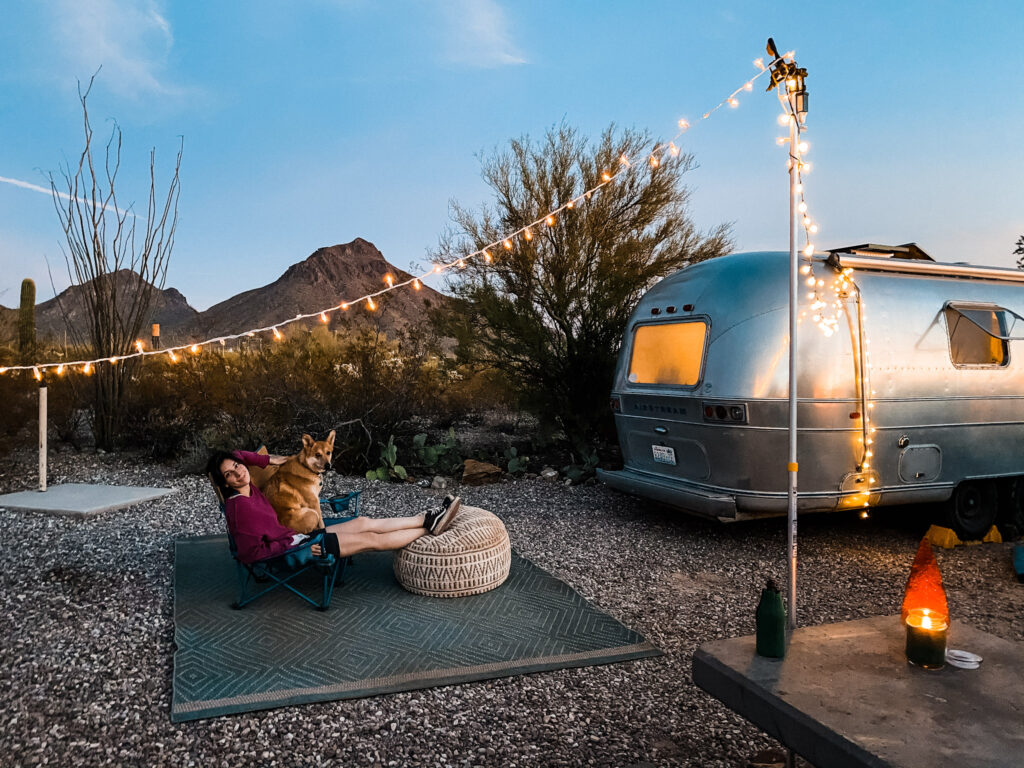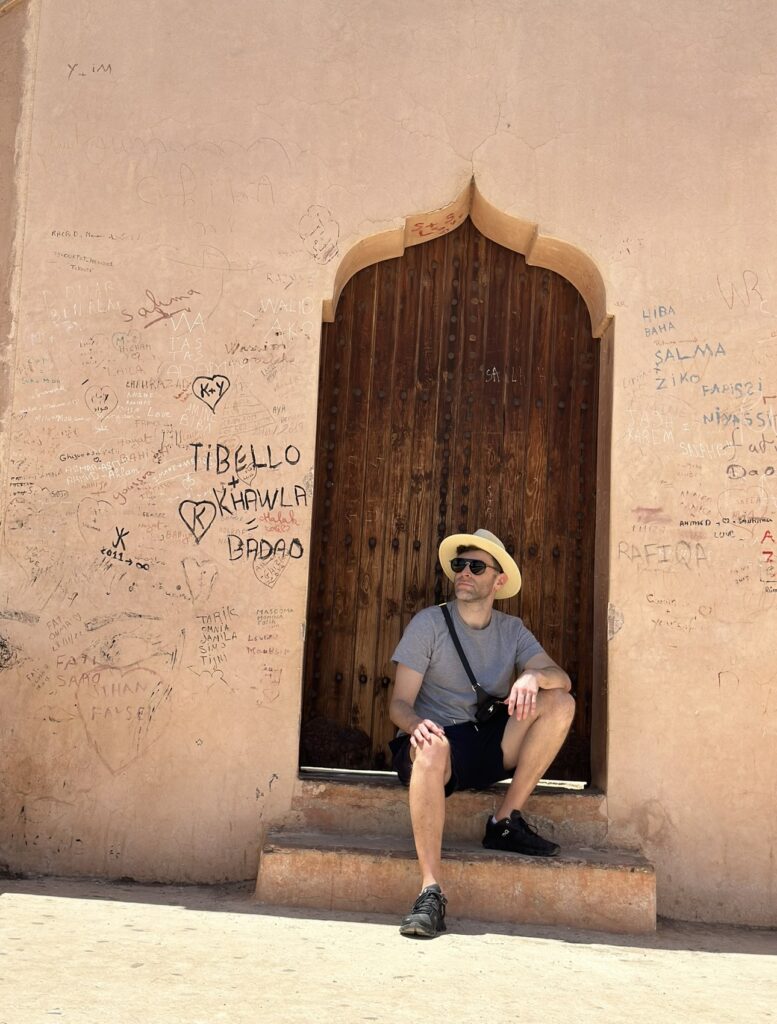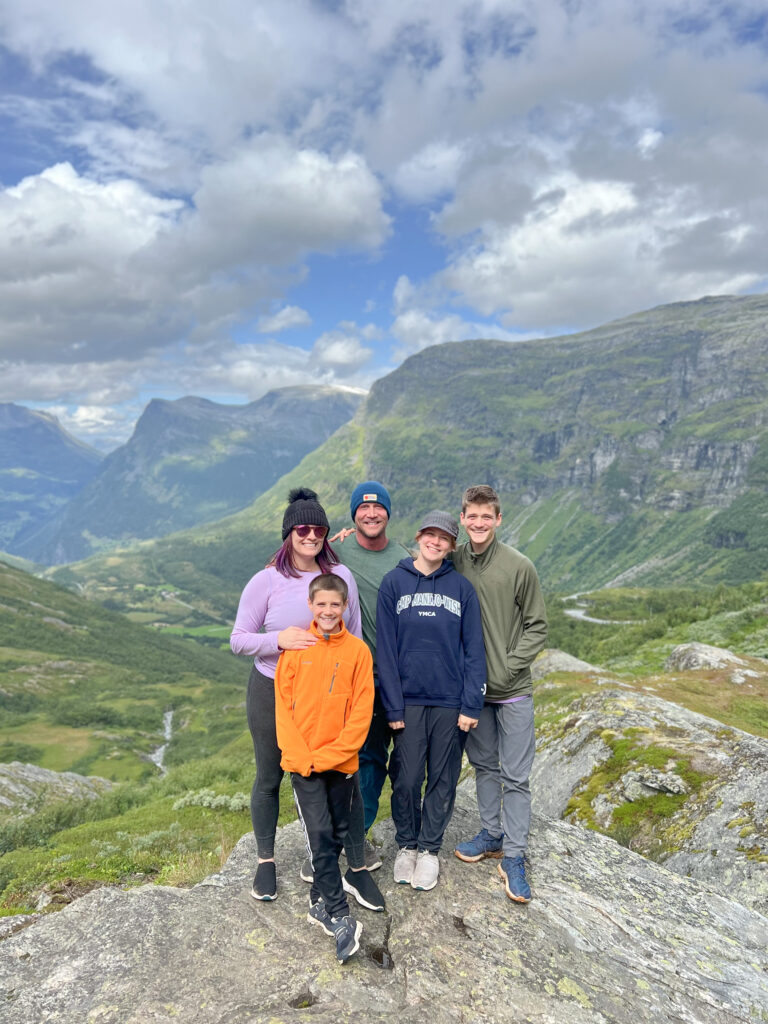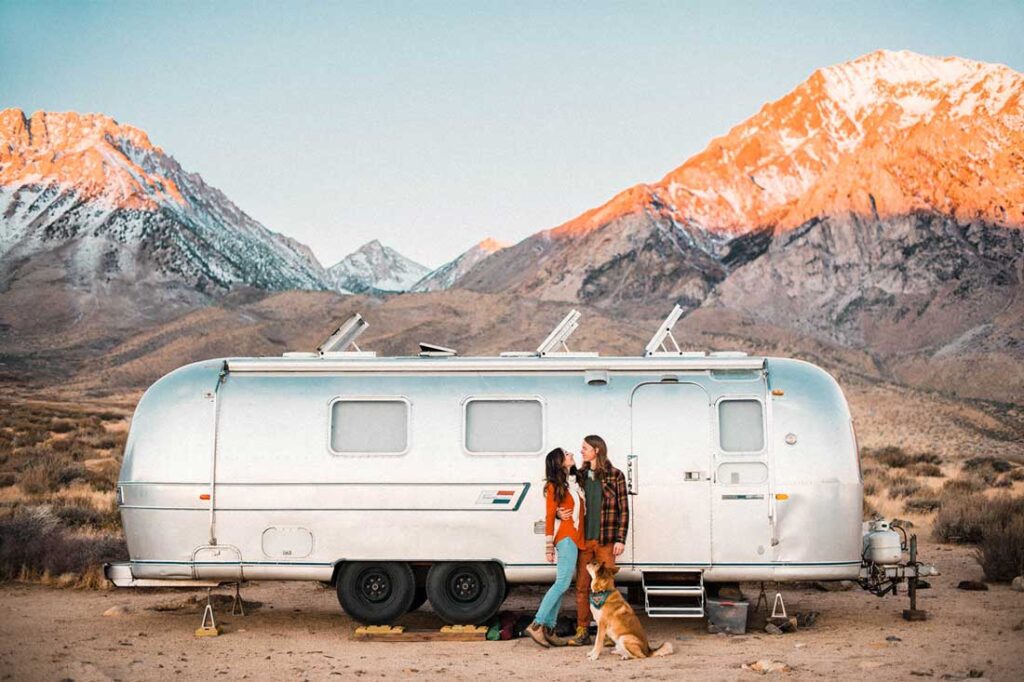Embracing a lifestyle defined by flexibility and adventure, digital nomads have redefined the traditional notions of work and travel. This modern breed of professionals leverages technology to break free from geographical constraints to blend work, family life and wanderlust. For today’s digital nomads, remote work is not just a job—it’s an intentional lifestyle choice that offers both rewards and challenges. From exotic locales to bustling coworking spaces to online family learning, the digital nomad lifestyle offers a unique blend of independence, innovation and a passport-stamped career path. Meet these digital nomads who are making it work.
Brandon and Gabi Fox
Photographers/owners of The Foxes Photography
My wife Gabi and I stumbled into the world of digital nomading. We didn’t plan it; it just happened out of necessity. Before hitting the road, Gabi worked in finance, and I was a copywriter in Boston. In 2014, we decided to ditch our jobs and bought a trailer to spend a year traveling and rock climbing—camping at the crag and moving to new spots as the seasons change, following the good weather.
After year one, we knew we didn’t want to go back to our city life or jobs. We’d been doing a lot of photo and video work documenting our travels and rock climbing, so we leaned into that and started our photography business. It was a stressful year two, not going to lie. It was make-or-break, and we had to focus less on climbing and traveling and more on growing our business. But we were determined to figure out a way to make it work.

Becoming financially stable with The Foxes Photography
The biggest challenge was figuring out how to make our nomadic life financially stable. Fortunately, living in a trailer helped keep our expenses low. Surprisingly, the typical challenges people associate with road life—sharing a small space, no bathroom/shower, figuring out how to get mail—weren’t a big deal. Of course, trailer hiccups—like things breaking and needing repair—can be tough to deal with but are minor in the grand scheme of things. It’s all a part of the journey.

Being able to park our trailer in some of the country’s most beautiful places and call them home for a few weeks or a few months is something we’ll never get tired of. We love the eastern side of the Sierras in California and the southern Utah desert especially. Plus, we’ve met so many like-minded friends on the road. We now have a home base in Washington but still travel half the year. Being tied down to one place year-round feels like something we’ll never go back to.
Tech must-haves include an unlimited data hotspot for our internet, Slack (to communicate with our team), the Gas Guru app (for the cheapest gas around) and Google Earth (for forest roads we can follow to camp for free).
I think we’ll always spend a good chunk of the year traveling. There are times where we crave a house and some routine, but after a while, we start itching to get back on the road. We really love the digital nomad lifestyle and all the experiences we’ve collected and people we’ve met along the way.
Elliot Rozenberg
Founding partner, Lawyerly LLP, and founder, Eat My Critique
My journey into the digital nomad lifestyle began before the pandemic. I convinced my manager to let me work remotely from Buenos Aires, my favorite city, for two three-month stints.

As an attorney specializing in contracts, negotiations, influencer marketing and entertainment law, I knew that if my full-time job didn’t let me live as a digital nomad, I could one day start my own firm. Thus, Lawyerly LLP was born, allowing me to serve incredible clients who are supportive of my lifestyle while helping my team pursue their dreams. There’s nothing more rewarding than helping make someone’s dreams come true.
I realized that if I gave up my apartment, car and other costs of a “fixed” life, I’d have enough money to live in hotels and travel the world. Leaving LA became a no-brainer. And when Eat My Critique—a food blog that my partner Romeo and I launched together—began to take off, we knew we could make the nomadic lifestyle work.
Our journey had its challenges, from being taken into a police station in Thailand to falling off a camel in Egypt to our bout with dengue fever in Brazil. Over time, I’ve learned to embrace the unknown and focus on the joys of everyday life, realizing that people are generally wonderful.
Digital nomad lifestyle: Working U.S. hours
The best part of this lifestyle is that every single day I have the ability to cross something off my bucket list. Workdays have included visits to the Great Pyramids, penguin encounters in Cape Town, attending Rio’s Carnaval parade and touring La Sagrada Familia in Barcelona.
By generally working U.S. hours, I carve out time for sightseeing, activities and, of course, lots of eating. When you’re a digital nomad, you know that you can always return to a place if there’s a sight you want to see or a restaurant you want to try. That’s such a powerful, calming realization.
Besides favorite destinations (like Bangkok, Buenos Aires, Berlin, Madrid and Johannesburg) that have incredible food scenes, culture and history, I’ve loved more off-the-beaten-path places like Latvia and the Kingdom of Eswatini.
Our days typically include breakfast, gym, sightseeing, work and dinner, adjusting for different time zones. Reliable internet access is crucial for remote work, and video calls keep us connected with clients globally.
Everyone always asks, “When do you think you’ll settle down?” and my answer is always, “Not anytime soon… maybe never.” I believe we embody the future of work, showcasing the freedom to work from anywhere. It’s enabled me to live the life I’ve dreamed of and that shines through in the work I’m doing. It has made me a better business owner, partner and adviser to clients, and I’m excited to continue to grow from here.
Tiphini and Kris Axtell
Tiphini is director of communications and Kris is CEO/managing member, Luna Capital Advisors
My husband and I own a commercial loan brokerage in Santa Fe, New Mexico. Our journey into the digital nomad lifestyle started over a decade ago, with dreams of relocating to Costa Rica with our three kids—Kade (13), Kyler (15) and Kayson (16). When the pandemic hit, the lightbulb went off: Now is the time to take this adventure, as remote work became the new norm. We went to Costa Rica for two weeks, then decided to take a gap year traveling the globe. We began in July 2023, and so far, we’ve been to three continents: Africa, Asia and Europe. We wanted to make the most of our time together as a family and break free from the constraints of conventional living.
Challenges are an integral part of this lifestyle, from shopping for groceries to securing reliable Wi-Fi to navigating cultural differences. Patience, flexibility and regular family meetings help us handle obstacles. We also double-check Wi-Fi speeds at all lodging, have local SIM cards loaded with data, do tons of pre-travel research, are willing to step outside our comfort zone and adjust our schedules to work around U.S. work hours.
Remote work with Luna Capital Advisors

The joys far outweigh the challenges. Our family has grown, both individually and collectively. Being immersed in other cultures has made us more empathetic, open-minded humans. And we ensure everyone’s needs are being met, making changes as needed. When we realized Kyler was struggling with math and needed help with executive functioning tasks, we turned to Cicero Learning for support. Our children are now learning in ways that are really tailored to their exact abilities and interests. Watching our children fully immerse themselves in a place, interact with people of all ages and backgrounds, grow into respectful global citizens and learn through doing and seeing instead of reading and reciting has been amazing.
Balancing work and a digital nomad lifestyle involves leveraging the time zone advantage for late mornings and flexible schedules. With a condensed workday, we find more time for personal pursuits, aligning with our intention of adopting a slower, more intentional pace. A typical day involves family time, work/school cycles and midday sightseeing, such as exploring the Sunnmøre Alps in Norway and Siwa Oasis in Egypt.
Technology plays a crucial role, using apps like Google Translate, Airbnb, WhatsApp and Zoom. Local SIM cards and pocket hotspots have been indispensable for staying connected for work and school.
Community building happens organically through routine interactions (like working out at local gyms and frequenting the same parks and coffee spots) and connecting with expat families.
Looking ahead, we see this lifestyle extending beyond a year. Being flexible, communicating with one another and constantly reevaluating things are key.
This article originally appeared in the May issue of SUCCESS+ digital magazine. Photo courtesy of The Foxes Photography.




